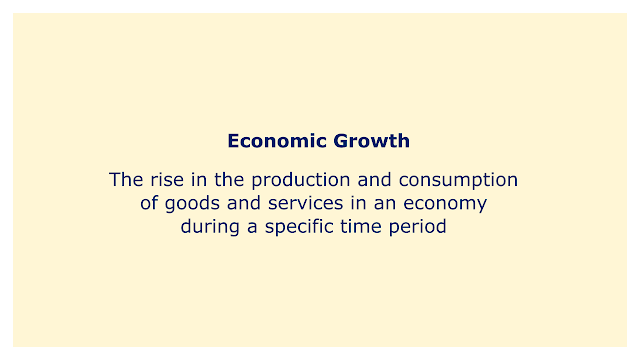 |
| Image: Moneybestpal.com |
The rise in the production and consumption of goods and services in an economy during a specific time period is referred to as economic growth, a crucial concept in macroeconomics. The growth in a nation's Gross Domestic Product (GDP) or Gross National Product (GNP) during a specific time period is typically used to measure it.
Economic growth is a key sign of a nation's overall economic health and is frequently used to evaluate the effectiveness of economic policies and the economy as a whole. High rates of economic growth are frequently associated with a nation's strong economy, which offers its population more chances for employment, innovation, and higher standards of living.
Increases in productivity, technical progress, capital investment, and government policies that encourage economic development are just a few of the variables that might influence economic growth. The expansion of foreign investment and commerce are two more factors that can stimulate economic growth.
The depletion of natural resources, increased pollution, and wealth inequality are just a few of the negative effects that economic expansion may have, therefore it's crucial to be aware of this. Therefore, it is crucial for decision-makers to give considerable thought to the possible advantages and disadvantages of economic growth when formulating economic development plans and strategies.
